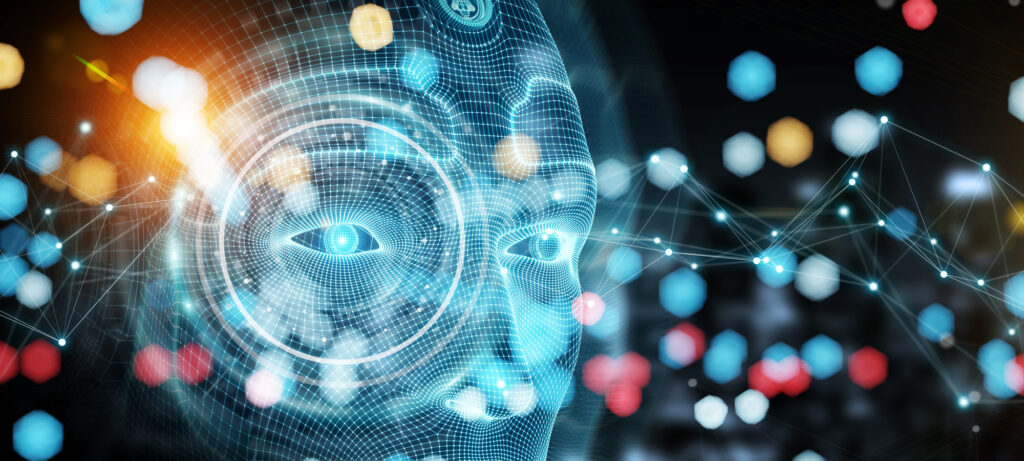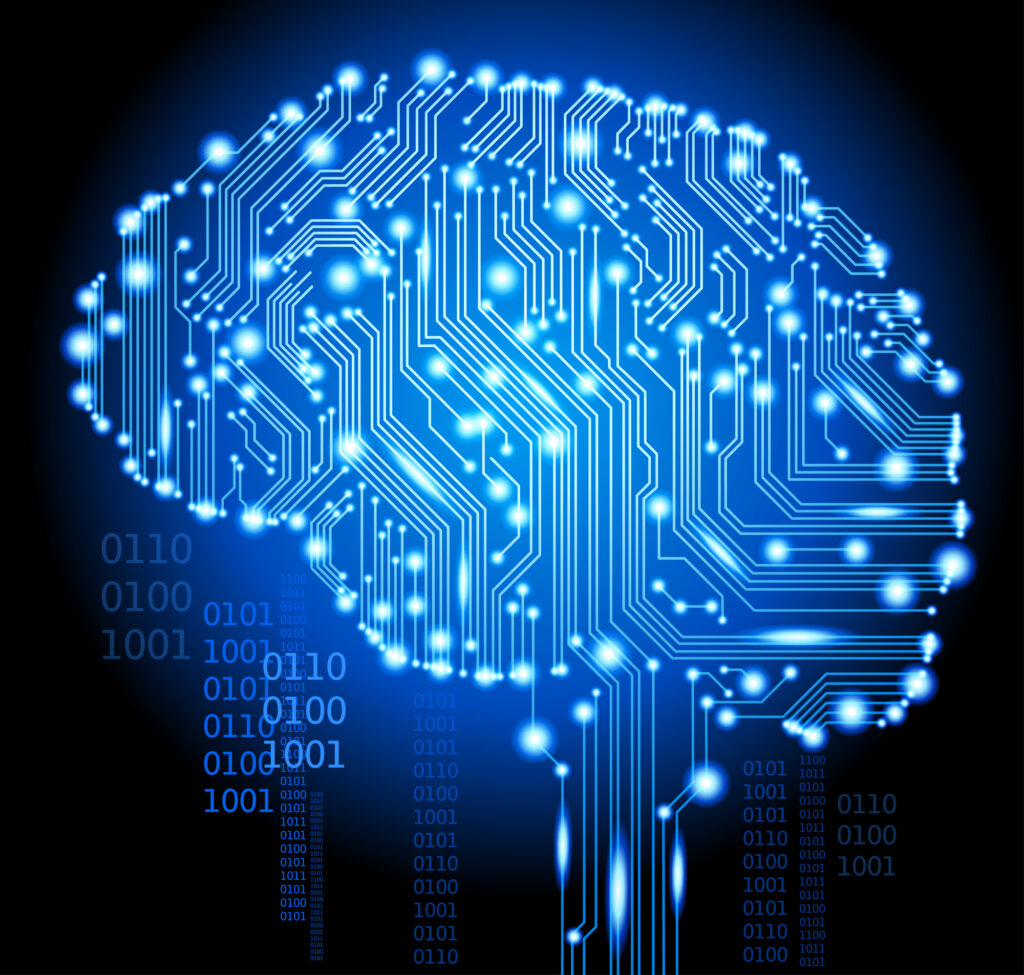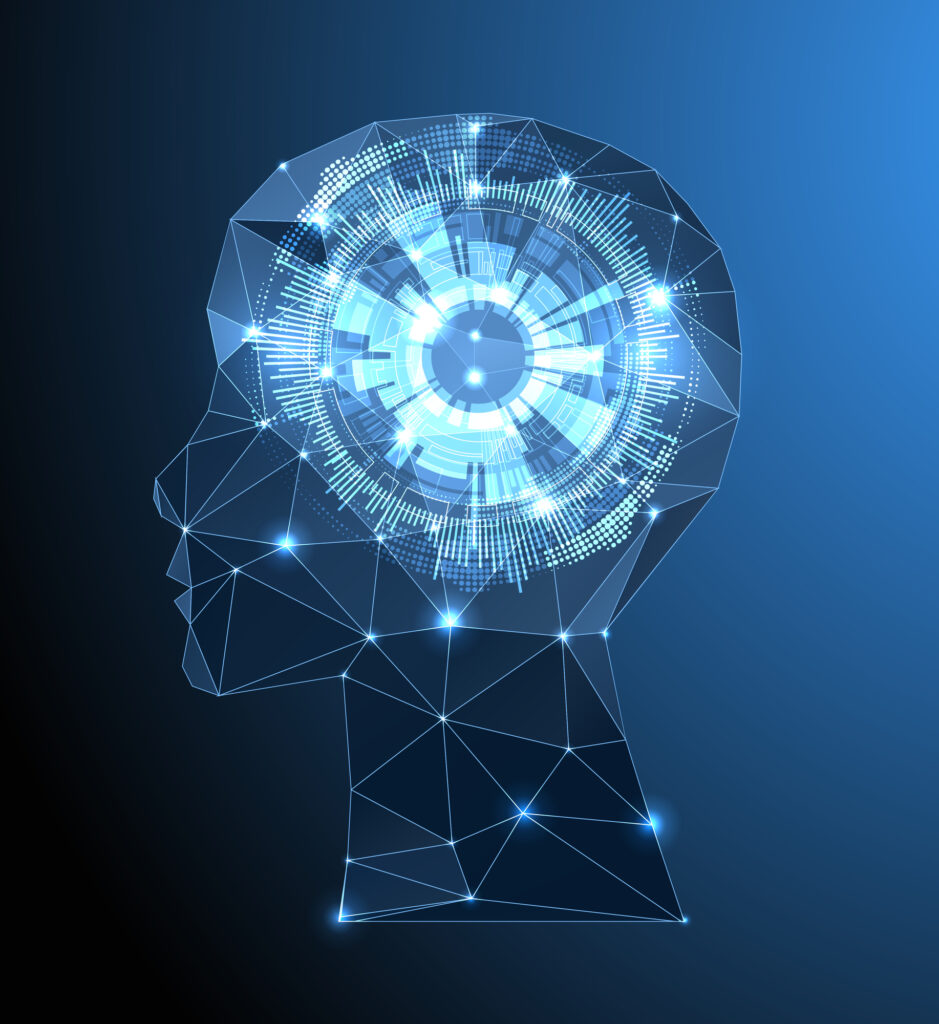AI in digital marketing empowers businesses by automating marketing tasks and improving processes. It allows marketers to save time by automating tasks that are difficult or impossible to complete manually in a reasonable amount of time.
From 2020 to 2023, the global artificial intelligence market will generate sales of $433 billion. AI marketing revenues are expected to exceed half a billion dollars by 2023.
What is the use of artificial intelligence in digital marketing and how are brands utilizing it? We’ll take a deeper look at the answers to see how AI is utilized in digital marketing.
What is AI in Digital Marketing?
Artificial intelligence allows marketers to create intelligence elements using human hands. AI is used in digital marketing to improve and facilitate processes. This runs parallel with the primary motive for AI-driven technology advances.
Artificial intelligence is more than simple digital tools or automation. It mimics the way humans think and make decisions. It helps marketing teams to create marketing plans and workflows that are effective.
Data is needed for AI in digital marketing to fulfill its responsibilities within the frameworks of algorithms. Data is the raw material for artificial intelligence models and algorithms. Data collection and data protection are hot topics in the business world today.
Digital marketing produces a huge amount of data. It is meta to buy, sell, own, and protect. AI is the solution for the challenges of managing and analyzing this Big Data so that businesses can improve their marketing performance.

How do companies use AI in digital marketing?
Artificial intelligence can help businesses and brands create new ways to communicate with their target audiences. Artificial intelligence can be lect data on customers, consumers, and potential customers in digital marketing.
Artificial intelligence can evaluate and process large amounts of data in real-time with a predetermined plan. Marketers will be able to create marketing strategies that are competitive by looking at the entire picture. Artificial intelligence and its branches, such as Natural Language Processing, Machine Learning (ML), and email marketing play a major role in digital marketing.
Artificial intelligence is a key promotional tool that helps companies to increase their advertising effectiveness. AI digital advertising combined with the correct content allows companies to reach their audience at the perfect time and place.
AI marketing is based on data, analytics, and research that are well-matched. AI and digital marketing are a powerful combination that can work wonders for lead generation.
Here are some of the key ways AI is being used in digital marketing:
AI in CRM
Customer relationship management (CRM) is a strategy for businesses that adapts a customer-centric perspective by filtering accurate information and maximizing the collection of information from users. This is a great AI-driven approach to gaining accurate insight.
With CRM and AI combined, companies can understand the behavior of consumers, including what products and services they prefer, how much money they’d like to spend, and many other things. Besides, AI-based CRM tools help companies access their marketing data around 95% faster.
These tools enable companies to develop an effective AI Marketing Strategy to increase conversions and leads. These data allow marketers to analyze consumer needs and use artificial intelligence to increase sales. AI and CRM help to transform the world of digital advertising.
Spotify is one of the companies that use AI-based CRM tools. Its choice is to go with Salesforce can improve its account engagement, build differentiated customer journeys and provide users with omnichannel support to meet their needs quickly.
AI Chatbot Applications
Chatbot applications, which use artificial intelligence to match questions to relevant topics and semantic definitions, have begun to offer many benefits to improve customer service and experience. Chatbots, for example, can handle multiple customers simultaneously, whereas customer service representatives only deal with one person.
It can also provide 24/7 service. You can uninterruptedly communicate with your customers. This allows you to stay ahead of competitors who don’t offer this service. If your company has operations overseas, you can communicate with your clients in different languages and time zones.
The chatbot makes managing finances easier and more intuitive by allowing users to quickly get information on balances and expenditures, as well as set up personalized notifications. Chatbots and artificial intelligence are changing the financial industry, and improving the customer’s experience.

AI in digital advertising
Digital advertising is undoubtedly one of the most successful areas in which AI studies have been integrated. Big brands like Facebook and Google are using artificial intelligence to improve their advertising platforms.
It analyses user information such as age and gender and displays ads that are relevant to the business. Advertising has a greater return on investment.
Coca-Cola is another example of AI being used in digital advertising campaigns. The brand uses AI to automatically generate texts, logos, and narratives for its ads.
AI in digital advertising has many benefits, but only if it is used correctly. Artificial intelligence can help you get the best results for your advertising campaign.
AI in Content Marketing
Artificial intelligence has a growing impact on content marketing. AI makes digital marketing easier, especially in terms of audience targeting. By leveraging these insights, marketers can reach more users, attract more customers and achieve digital transformations.
Nestle is one of the companies that benefit from AI for content marketing. Natural language processing technology is used by Nestle to create personalized content that targets different audience segments. This enhances its content marketing and results in increased sales.
Content marketers can produce more digital content by using AI-based content tools like Writesonic, Jasper.ai, and ChatGPT. To determine if AI can be used for content marketing, we recommend using AI-based tools such as Writesonic, Jasper.ai, and ChatGPT. You can use AI for a variety of types of content including video scripts, blog posts, social content, and ad copy once you have identified where it can be beneficial. It’s important to note that editing content generated by AI will be necessary to ensure marketing standards are met. This is recommended by experienced marketers, including Whitley Cornuke of TalentLaunch.
Alex Cattoni, a well-known marketing expert, tries chatGPT to generate copies. He summarizes the situation by saying:
Does it work like a magic wand to create copy that converts well? No. Is this a quick way to build a business that people will trust? No, it is not. Does it replace your writing skills? It won’t replace you as a writer if I have any creative ideas, and I know that you do. But it could be your new best friend if it is used properly.

AI in SEO
Marketers are increasingly reliant on AI to adjust to search engine algorithms. SEO is a complex process that covers many requirements both technically and semantically. Artificial intelligence can improve your website’s ranking and allow for better strategies and content development.
According to research conducted by HubSpot, more than half the marketers surveyed said that organic traffic and keyword rankings are the main ways they measure the success of their SEO strategies.
Many companies have focused their efforts on using AI to enhance their SEO practices. STACK used artificial intelligence, for example, to identify keywords with high search volume, analyze their visibility on SERPs and conduct competitive research to identify successful content structures and themes.
AI can also be used to improve the technical aspects of a website. You can, for example, generate hreflang or structured data such as FAQPage schema markup, create links, and set rules for your robots.txt. As Aleyda Soles shows in her blog about using ChatGPT for search engine optimization, simple and short prompts are more than sufficient.
AI and User experience (UX).
Human intervention is required for the best UX. Artificial intelligence may be able to solve specific optimization problems, but it is not yet ready to replace humans.
AI will continue to blend the creativity and brain of humans with the practical solutions the virtual world provides his emerging fields can help generate new ideas by simplifying the technical process. AI allows marketing teams to spend more time on human skills, as it will speed up the application process.
UX algorithms continue to learn from user actions at all times. They track what content we consume and how often. They know us personally so well that they can make educated guesses about our preferences. Customer data from such services combined with artificial intelligence creates a unique product for every user. They provide a unique service to each user.
Netflix Search, for example, allows users to find new videos by searching on their preferred entertainment terms. Artificial intelligence creates a personalized homepage based on the data collected through these searches.
What is the future of artificial intelligence in marketing?
Artificial intelligence has already had a major impact on the market. Most people agree, however, that this is only the beginning. We can all agree that we have a lmuch learn about artificial intelligence. To make accurate predictions about AI, it is a good idea to examine AI campaigns from marketing agencies.